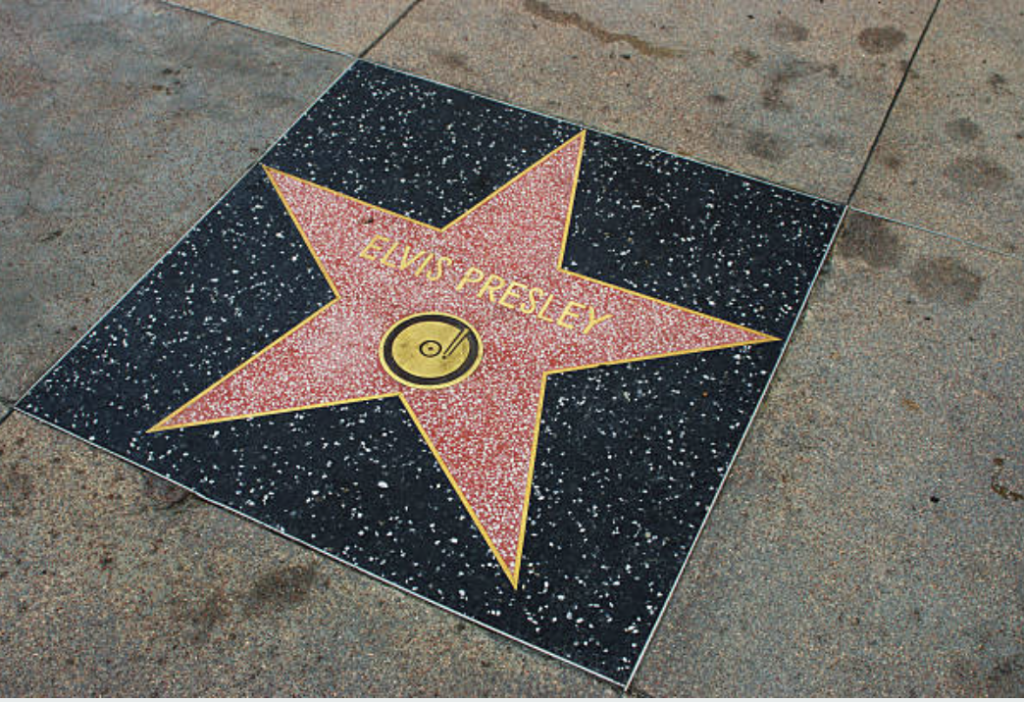Seventh Edition
New and Noteworthy
Recent Developments in Music and Copyright
By Don Franzen
The End of Deepfakes?
For years, states have had laws restricting the use of a celebrity’s “name, image and likeness” for commercial purposes such as advertising (see, for example, California’s Civil Code Section 3344 and New York’s Civil Rights Law §§ 50-51). But these laws did not address the specific circumstance of the impersonation of a celebrity as opposed to the use of the celebrity’s actual persona. Previous cases to address this situation relied on legal doctrines such as the common law right of publicity (see Midler v. Ford 849 F.2d 460 (9th Cir. 1988)) or trademark laws (see Waits v. Frito Law 978 F.2d 1093 (9th Cir. 1992)).
The issue is now acutely important in the face of AI generated “deepfakes” such as the now notorious “Fake Drake” song that dropped on streaming platforms earlier this year. To fill this gap, Tennessee has recently enacted the so-called Ensuring Likeness, Voice and Image Security Act (acronym ELVIS Act), which amends the state’s right of publicity statute to apply “regardless of whether the sound contains the actual voice or a simulation of the voice of the individual.”
The ELVIS Act imposes liability even on technology providers if their purpose “is the production of a particular, identifiable individual’s photograph, voice, or likeness, with knowledge that distributing transmitting, or otherwise making available the photograph, voice, or likeness was not authorized by the individual.” To avoid constitutional objection, the ELVIS Act disclaims application to any circumstance that would be protected by the Fair Use Doctrine under federal copyright law. The Act goes into effect on July 1, 2024. With Tennessee taking the lead, will other states with major entertainment industries, like California and New York, be far away from enacting similar legislation?

Congress is also looking at AI generated deepfakes. Introduced in the Senate in Fall of 2023, the Nurture Originals, Foster Art and Keep Entertainment Safe Act (or the NO FAKES Act) would authorize legal action for “producing or hosting” digital replicas of celebrities. The rights created under this legislation would protect both living and deceased artists, and continue for seventy years beyond the celebrity’s death (the same duration as copyright protection). The proposed legislation defines a “digital replica” as “a newly-created, computer-generated, electronic representation of the image, voice, or visual likeness of an individual” that appears “nearly indistinguishable” from a performer. Hearings on the bill were underway in late April of 2024. Not to be outdone, members of the House introduced a similar bill in January of 2024 called the No Artificial Intelligence Fake Replicas and Unauthorized Duplications Act (or No AI FRAUD Act). Passage of some form of national prohibition of deepfakes seems likely.
Transparency for Generative AI?
How do copyright owners know if their material has been used to generate new content? “Scraping” the internet is a widespread method utilized to collect the data AI needs to train from and generate new content. Recently proposed legislation, the Generative AI Copyright Disclosure Act, would address concerns that arise from this issue by requiring “a notice be submitted to the Register of Copyrights with respect to copyrighted works used in building or alerting the training for that system.” For more information, see “Rep. Schiff Introduces Groundbreaking Bill to Create AI Transparency Between Creators and Companies.”
Schiff’s proposed legislation reflects a deep concern among copyright owners that their property is being pilfered to create new content, as exemplified by the warning letters sent by Sony Music in May of 2024 to some 700 software developers and streaming services to refrain from using its artists’ music to train generative AI tools without its permission.
The EU is ahead of the US on this issue. In March of 2024, members of the European Parliament passed the EU AI Act, which, among other things, requires developers of “general purpose AI” models to monitor and disclose what content is used in training: “Any use of copyright protected content requires the authorization of the [rights holder] concerned, unless relevant copyright exceptions and limitations apply.” Will the EU AI Act have extra-territorial impact, such that US based companies will be obliged to respect it?

Unscrambling the Egg: What if AI Co-Writes Your Song?
Country musician Anna Vaus and her brother asked generative AI to write lyrics for a song, giving AI just the title of the song, “River of Love,” as a prompt. The AI came up with verses and an opening line, “I’ve been a river looking for ocean arms.” The songwriters composed chords, added rhythm, and recorded the lyrics just as written by the chatbot. You can listen to “River of Love,” here:
Can this song be copyrighted?
In line with its previous decision involving Zarya of the Dawn, a graphic novel, and its guidance from last year, the Copyright Office’s position is that AI generated lyrics cannot be copyrighted, whereas the “human” contributions to the song can be protected. Consequently, in effect, the lyrics of “River of Love” are in the public domain.
Fine, so far as this example goes. But, how do you unscramble an egg? What if the songwriters don’t record the lyrics exactly as generated by the AI? What if the musicians select, arrange, or adjust the words? What if AI suggests some melodies or chords but the musicians adjust, modify, or independently write the rest? How much AI involvement renders the verses unprotected? Put another way, how active must the human contribution be to afford copyright protection? Future cases will tease out such details … and time will tell whether the Copyright Office and the courts can hold to a “bright line” test to segregate protected from unprotected AI generated content.
What positions have other countries taken on the human vs. AI contribution issue? A recent article written by Cooley LLP Associates suggests the answer varies by jurisdiction: in the US, AI generated content is not protected; in the EU, probably not; in the UK, ownership may be available; and in China, ownership is possible. How this patchwork of legal standards will eventually be sewn together remains to be seen.
TikTok on the Block
This has not been a good year for TikTok. For some time vilified as a massive music copyright infringer, TikTok came into direct confrontation with the world’s largest music company, Universal Music Group, earlier this year when the recording industry giant removed its catalog from TikTok in a dispute over licensing fees. That standoff was later resolved in early May 2024 and Universal’s catalog was restored to the platform.
The Universal/TikTok altercation has proven to be the least of the company’s troubles. In April 2024, President Biden signed the Protecting Americans from Foreign Adversary Controlled Applications Act that would force a sale of TikTok by its Chinese owner ByteDance within a year. The justification for this draconian measure? A vaguely worded “national security concerns” over the collection of American user data by ByteDance.
TikTok struck back within days of the bill being signed with a petition filed in the District of Columbia Court of Appeals for a declaration that this Act is unconstitutional on four distinct grounds: (1) as a violation of the First Amendment free speech rights of both TikTok and its users; (2) as an unlawful Bill of Attainder (i.e., a law enacted to impact just this one company; (3) as a violation of Equal Protection of the Law; and, (4) as an unconstitutional taking of property without compensation.
For some insight into this, YIT consulted Stephen Rohde, who first litigated First Amendment cases for almost 50 years. According to Rohde, the legal challenge against banning TikTok presents a strong First Amendment case. In fact, in November of 2023, a federal judge enjoined a similar Montana law banning TikTok, finding that the law “oversteps state power and infringes on the Constitutional rights of users as businesses.” Rohde also notes that in 1965 the US Supreme Court unanimously held that Americans have a constitutional right to receive foreign mailings of “communist political propaganda.” But the legal challenge based on the constitutional prohibition against “Bills of Attainder” is on shakier ground, he believes, since the provision has generally been used to invalidate a law enacted to retroactively punish persons for a past offense without a trial and has not been used to protect corporations.
The petition can be read here:
Recognizing the importance of resolving these issues, the DC Court of Appeals has set an expedited hearing schedule.


Don Franzen’s legal practice covers the spectrum of the entertainment industry, including recording, television, film, live entertainment, copyright, trademarks, endorsements, corporate, tax and visa issues, and non-profit organizations. His clients include composers, producers, vocal and instrumental artists, as well as performing arts organizations. In addition to providing business and legal advice, he has acted an as a producer on recording, video and theatrical projects. He also has established an expertise in commercial civil litigation, including appellate practice (State and Federal). He has lectured on entertainment law for Eastman School of Music, the Santa Monica College Academy of Entertainment, the Colburn School of Music, the California Institute of the Arts, and is a visiting professor at the Berklee School of Music (Valencia, Spain). Since 2009 he has taught courses on music and the law at the Herb Albert School of Music, University of California Los Angeles, and effective 2016 has been appointed as an adjunct professor as part of its Music Industry Program. Since 1997 he has been chosen as a Fellow of the Institute for the Humanities at the University of Southern California. He serves as the Legal Affairs Editor for the Los Angeles Review of Books, and has authored various essays and book reviews on legal topics. He is a founding director of the Los Angeles Opera, and a director of Heyday Books. In addition to his native English, he speaks Spanish, Italian and conversational German. He is married to Dale Franzen and proud father of three children. He may be reached by e-mail at [email protected].
© 2024 Your Inside Track™ LLC
Your Inside Track™ reports on developments in the field of music and copyright, but it does not provide legal advice or opinions. Every case discussed depends on its particular facts and circumstances. Readers should always consult legal counsel and forensic experts as to any issue or matter of concern to them and not rely on the contents of this newsletter.
